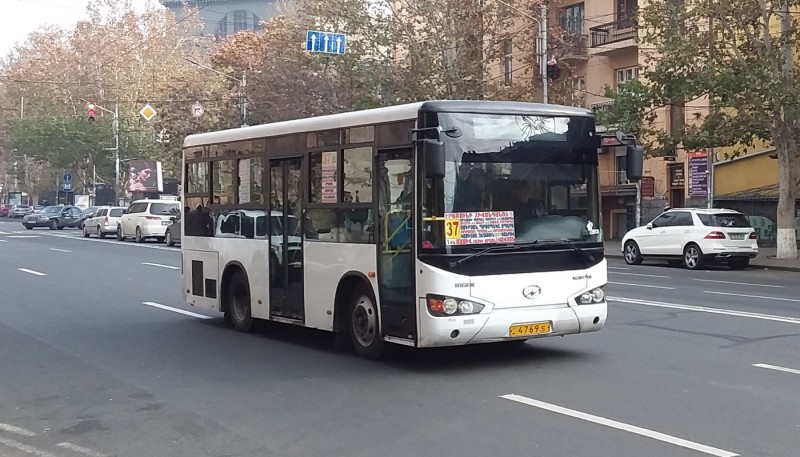Yerevan Mayor Tigran Avinyan’s announcement on Wednesday of minor adjustments to the looming public transport fee increases has done little to quell growing public frustration. Critics argue that these token changes fall far short of addressing the financial burden the new system places on citizens, particularly vulnerable groups like pensioners.
The planned price hikes, set to take effect on February 1, will replace the current flat fee of 100 drams (25 U.S. cents) per ride with a more expensive and complex electronic payment system. Commuters will be required to pay 9,000 drams ($22) per month, 24,000 drams per quarter, or 90,000 drams annually for unlimited rides on buses, trolleybuses, and the metro. While Avinyan has proposed extending the validity of short-term tickets and offering a modest 10 percent discount on a 10-ride tariff, these measures provide little relief for the majority of riders.
Opposition groups in the municipal legislature were quick to condemn the adjustments, dismissing them as superficial and inadequate. Grigor Yeritsyan, a senior member of the opposition faction led by former Mayor Hayk Marutyan, called for the entire pricing scheme to be scrapped, describing it as unjustified and punitive. Marutyan has urged citizens to boycott the new fares and continue paying 100 drams, a move that reflects the widespread discontent brewing in Yerevan.
The backlash is fueled by the government’s failure to provide a convincing justification for the price hikes, which municipal authorities claim are necessary to cover financial losses and purchase additional buses. However, many view this as a short-sighted and poorly planned attempt to fix systemic issues at the expense of ordinary citizens. Pensioners, despite a 30 percent discount, have been especially vocal in their opposition. With the average pension being around 50,000 drams (125 U.S. dollars) the price hike will be unaffordable for the most vunerable part of the population.
The timing and implementation of the fee hike have also drawn criticism. While the administration argues that these changes are essential for modernizing the transport network, it has failed to address fundamental concerns about affordability and equity. The lack of meaningful engagement with opposition groups and affected communities has further eroded trust in the municipal leadership.
As tensions rise and the February deadline approaches, the government’s minimal concessions appear to be a political misstep that could deepen public dissatisfaction. Without a significant reevaluation of the policy, the administration risks alienating large swathes of the population, potentially sparking protests that could undermine its authority in Yerevan.




